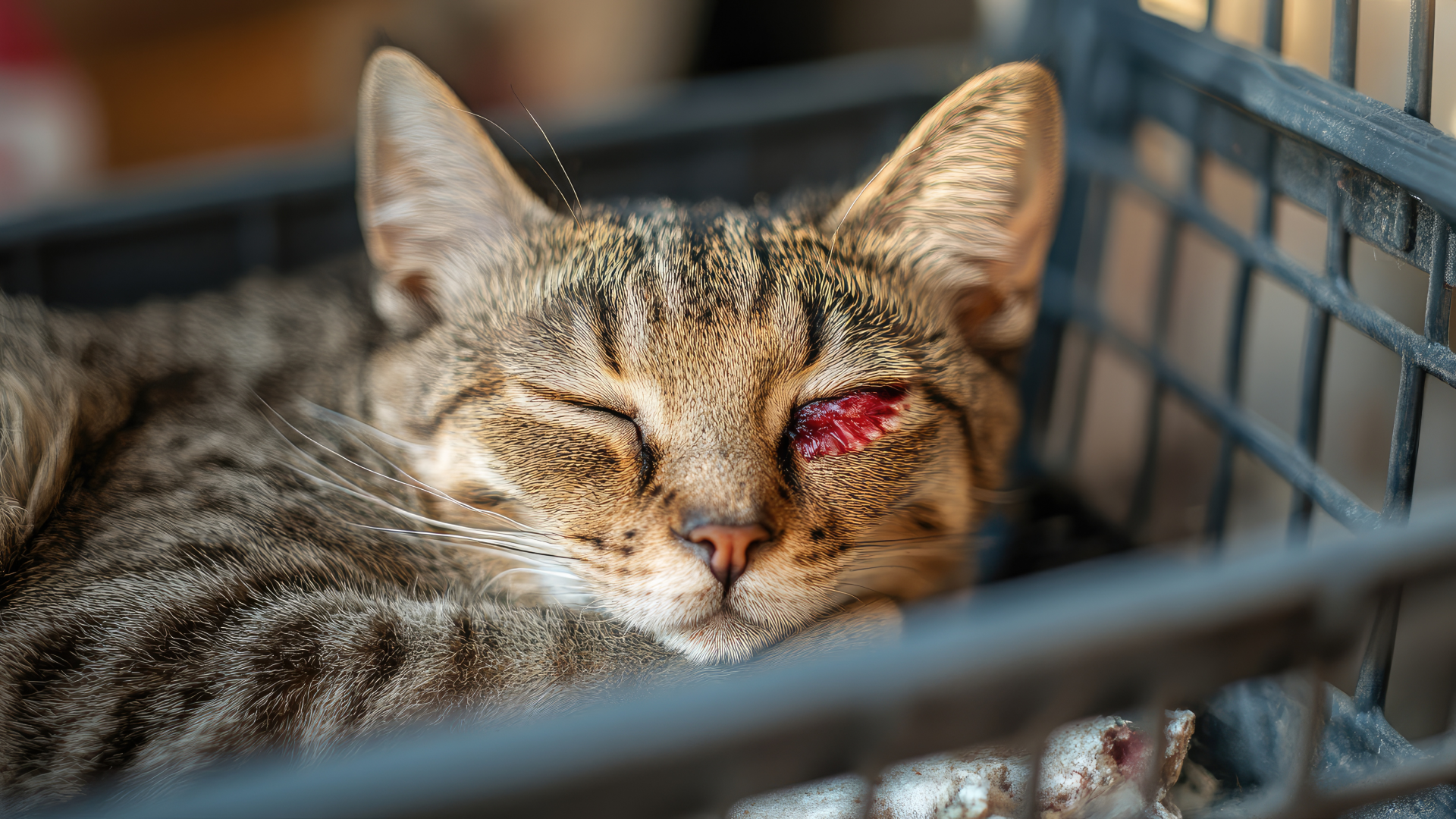Understanding Cat Eye Swelling and Bulging
When a cat's eye appears swollen or bulging, it's more than just a cosmetic concern – it's often a sign of a serious medical condition requiring immediate attention. These symptoms can indicate various underlying issues, from infections to potentially vision-threatening conditions like glaucoma or tumors.
As a cat owner, recognizing the signs of eye problems early and understanding their significance can make the difference between successful treatment and permanent vision loss. Let's explore the causes, symptoms, and treatment options for cat eye swelling and bulging.
Common Causes of Eye Swelling in Cats
Infections and Inflammation
Bacterial, viral, and fungal infections commonly cause eye swelling in cats. Feline herpesvirus is particularly prevalent, causing conjunctivitis and associated swelling. These infections often produce additional symptoms like discharge, redness, and squinting.
Trauma and Injuries
Physical injuries from fights, accidents, or foreign objects can cause significant eye swelling. Even minor scratches can lead to serious complications if left untreated, potentially resulting in infections or corneal damage.
Medical Conditions
Several serious medical conditions can cause eye bulging, including:
- Glaucoma (increased pressure within the eye)
- Orbital tumors or abscesses
- Dental infections extending to the eye area
- Allergic reactions
- Inflammatory conditions
Recognizing Emergency Situations
Any sudden eye swelling or bulging should be considered an emergency. Watch for these critical signs:
- Obvious protrusion of one or both eyes
- Inability to close the eye completely
- Excessive tearing or discharge
- Signs of pain (pawing at eye, avoiding touch)
- Changes in behavior or appetite
- Visible trauma or bleeding
Diagnosis and Treatment Options
Veterinarians typically perform a comprehensive eye examination, which may include:
- Measuring intraocular pressure
- Fluorescein staining to check for corneal damage
- Imaging tests (X-rays, ultrasound, or CT scans)
- Blood tests to check for underlying conditions
Treatment varies based on the underlying cause but may include:
- Antibiotics or antiviral medications
- Anti-inflammatory drugs
- Surgery for severe cases
- Pain management
- Supportive care and monitoring
Prevention and Long-term Care
While not all eye problems are preventable, these steps can help reduce risks:
- Regular veterinary check-ups
- Keeping cats indoors to prevent fights and injuries
- Maintaining current vaccinations
- Promptly addressing any eye-related symptoms
- Keeping the face and eye area clean
Frequently Asked Questions
What are the common causes of swollen and bulging eyes in cats, and how serious are they?
Common causes include infections, trauma, glaucoma, tumors, and allergic reactions. These conditions are serious and require immediate veterinary attention as they can lead to vision loss if untreated.
How do I know if my cat's eye swelling is an emergency, and what should I do next?
Any eye swelling or bulging should be treated as an emergency. Contact your veterinarian immediately if you notice protrusion, excessive tearing, discharge, or signs of pain.
Can a swollen or bulging eye in a cat be treated at home, or is veterinary care always necessary?
Never attempt to treat eye swelling at home. Professional veterinary care is always necessary to properly diagnose and treat the underlying cause and prevent vision loss.
What are the typical symptoms of eye infections in cats, and how are they diagnosed and treated?
Symptoms include redness, discharge, squinting, and swelling. Diagnosis typically involves physical examination and specific tests. Treatment may include antibiotics, antivirals, or other medications as prescribed by a veterinarian.
How can I prevent eye swelling and bulging in my cat, and what are some signs that I should be monitoring for?
Prevention includes regular vet check-ups, keeping cats indoors, and maintaining vaccinations. Monitor for any changes in eye appearance, discharge, squinting, or signs of discomfort.
Conclusion
Cat eye swelling and bulging are serious conditions that require immediate veterinary attention. Quick action and proper medical care are essential for preserving your cat's vision and ensuring their comfort and well-being. Never hesitate to seek professional help if you notice any changes in your cat's eyes, as early intervention often leads to better outcomes.






